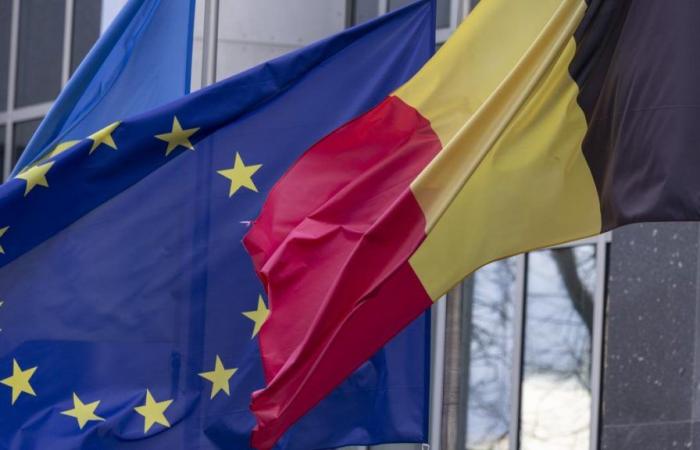
A Having barely completed its presidency of the Council of the European Union, Belgium is embarking on the preparation of another campaign, that leading to the designation of the future “European Capital of Culture” (ECC) which it will host in 2030.
The CEC label created in 1985 is a strong symbolic marker of the public action of the European Union (EU). Its meaning has evolved over time, from the ‘top-down’ development of a high place of a common European culture to the ‘bottom-up’ mobilization of local actors using culture to create a dynamic of innovation synonymous with Europeanization. After the first editions dedicated to historic centers of European civilization (Athens, Florence, Amsterdam, Paris), a first turning point was announced in 1990 with the choice of Glasgow, a metropolis in crisis which found there an opportunity for recovery. The CEC title then becomes a “rite of passage” allowing cities from candidate countries with a rich past (Krakow, Prague) to stage their return to the European family. Subsequent winners are often small towns carrying out a cultural project serving urban renewal, human development and international influence. This evolution is illustrated by the four Belgian cities which were successively European capitals of culture: Antwerp in 1993, Brussels in 2000, Bruges in 2002 and Mons in 2015.
Also read
When Europe (re)starts with culture…
As is often the case in matters of European symbolic politics, the analysis of the CECs focuses on economic results and says little about citizens’ perceptions of them. A survey on the legitimation of the EU carried out by sample* in two waves (December 2023 and June 2024) in France and Belgium provides some elements to fill this gap via two questions on the CECs. The results suggest that the way Belgian citizens perceive what a “European Capital of Culture” is reflects its political reality but also the usual limits of European communication.
Asked in June 2024 about the effects that according to them the granting of this label to a Belgian city will have in 2030, 29.8% of Belgian respondents responded that it “will promote economic activity and tourism” and 18% that this “will contribute to the international influence of Belgium”. The cultural aspect itself in the sense that the event “will encourage the active role of culture in Belgium” comes next (15.1%) while a small minority considers that “European institutions should not exist”. are not competent to designate a ‘capital of culture'” (6.9%). Finally, a small third of those questioned think that the designation of a Belgian city as CEC will have no effect (16.4%) or prefer not to answer (13.7%). The perception of the CEC essentially in terms of economic and international benefits corresponds well to the growing instrumentalization of culture in the service of other ends in the evolution of the label.
The perception of the CEC is subject to the influence of socio-demographic variables (age, diploma, place of residence, interest and confidence in politics, left-right positioning, self-identification as national or European) structure the attitudes in the report general to Europe. The effects of the CEC label are perceived as less and less positive by the youngest and the least qualified. On the contrary, a strong interest in politics helps to promote the impact of the CEC on the economy and culture. A very right-wing positioning predisposes one to consider that it has no effect or that it should not fall within the competence of European institutions. Low trust in national and European institutions or an identification as “Belgian only” are correlated with a negative evaluation of the impact and the very existence of the status of “European capital of culture”.
Also read
Brussels 2030: “The creolization of the city nourishes new positive forms of cultural expression”
Respondents are then invited to choose from the following Belgian cities that are candidates for the 2020 CEC title. Bruges comes out on top (28.3%) followed by Ghent (15.7%), Louvain (9%), Brussels-Molenbeek ( 8.9%), Namur (7.5%), Liège (5.1%) and Kortrijk (2%), with a small quarter (23%) preferring not to respond. This highlights the primacy given to – Flemish – cities endowed with historical and cultural prestige (Bruges, Ghent, Louvain). The option of Brussels-Molenbeek, referring both to the unpopular symbol of the institutional capital of Europe and to the traumatic memory of the terrorist attacks of 2015-2016, appeals little. The Walloon cities of Namur and Liège, undoubtedly less identified as cultural destinations, come next, with Kortrijk finishing last.
How can we explain these unequal scores? The size effect plays little role, Bruges celebrated as the “Venice of the North” being significantly smaller than Ghent or Liège. The hierarchy is not dependent on any particular news since it remains strictly identical in the two waves of the survey separated by six months (December 2023-June 2024). This hierarchy, however, varies significantly depending on language and place of residence (two elements which overlap without overlapping) being very discriminating elements. The Dutch speakers and the Flemish on one side, the French speakers and the Walloons on the other, each support “their” cities. Bruges is, however, the first choice in the two linguistic communities studied (the survey does not cover the German-speaking community) and in two out of three regions (with the exception of Brussels-Capital, whose inhabitants favor their city). The same question on the best choice of Belgian city for CEC 2030 asked in France places Bruges in the lead as in Belgium, but Brussels-Molenbeek and Liège in second and third position. This result suggests two things. On the one hand, the historical and cultural reputation of Bruges remains a decisive asset beyond the Belgian borders. On the other hand, the French favor French-speaking cities that they know better, while being significantly less mobilized than the Belgians on the question (42.7% non-responses).
Three conclusions can be drawn from this investigation. First, “cultural capitals” have become instruments of economic and territorial policy but their specifically cultural dimension still weighs on their perception by citizens. Then, these “European capitals” are considered through the prism of the local, the national and the language. Finally, their perception is marked by the same socio-demographic discriminations as general attitudes towards European integration.
As with Eurovision, the public vote is not decisive, the final decision falling to the experts… Bruges seems favorite in the eyes of Belgian or French citizens. But if Molenbeek manages to dissociate its candidacy from that of ‘Brussels-capital-of-Europe’ and overcome its negative image while putting its resilience and its multiculturalism at the service of an economic renaissance, it could appear as more in adequacy with the required profile of the CECs. The final choice will show the respective influences of the criteria of European public action, national policy and citizens’ preferences in the legitimation of the EU.
*Survey June 2024 BelgiumOnline survey carried out in French and Flemish by the iVOX research agency on behalf of the ULB (1st wave 11/28-12/1/2023; 2nd wave 6/21-26/2024) among 1000 Belgians from 18 years and over, representative sample by region, gender, age and diploma. The maximum margin of error is 3.02%.





